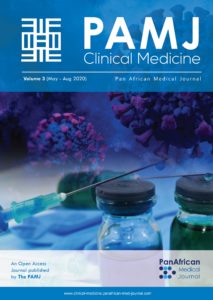Obstetric fistula is an abnormal communication between the vagina, the bladder and/or the rectum through which urine flows and/or feces (stools) are constantly discharged. Many women with this condition tend to think about hiding or even committing suicide. The objective of this study was to analyze the psychosocial reintegration needs of patients with vesico-vaginal fistula.
Methods
We conducted a descriptive cross-sectional study in two referral hospitals in charge of obstetric fistula management in Cameroon : The Protestant Hospital in Ngaoundere and the University Hospital Center of Yaoundé. The study had a duration of 9 months (October 2016- June 2017). All women who had vesicovaginal fistula were included. Among them, we excluded those who had not given their informed consent. The rate was calculated using Epi Info version 7.1.3.3. The number of patients and the percentages were calculated for the qualitative variables and averages, while standard deviations for the quantitative variables.
Results
The age of the participants varied from 17 to 48 years with a mean of 32.13 ± 8.03 years. Among the ovaeall 50 women, 37(74%) experienced a perinatal death, and 4 of 24 women who had an occupation before fistula lost their job. Psychological unmet need were dominated by law focalized specific counseling in case of perinatal death5/37 (13.5%), low focalised counseling when anandonned by family/partner, 9/28 (32.1%), low proportion of specific counseling in case of suicide though, 2/16 (12.5%) ans and complete absence of specific care for ten patients who experienced anxiety/depression. On social view, unmet need were dominated by low reintegration of associations, 21/50 (42%). Concerning economical unmet needs, there were no income generating activity for 26 jobless women before fistula and specifically for those four woemn who lost their occupation because of fistula.
Conclusion
Psychological, social and economical unmet needs where dominated by low case focalised counseling, low integration nof associations, and absence of income generating activities.

